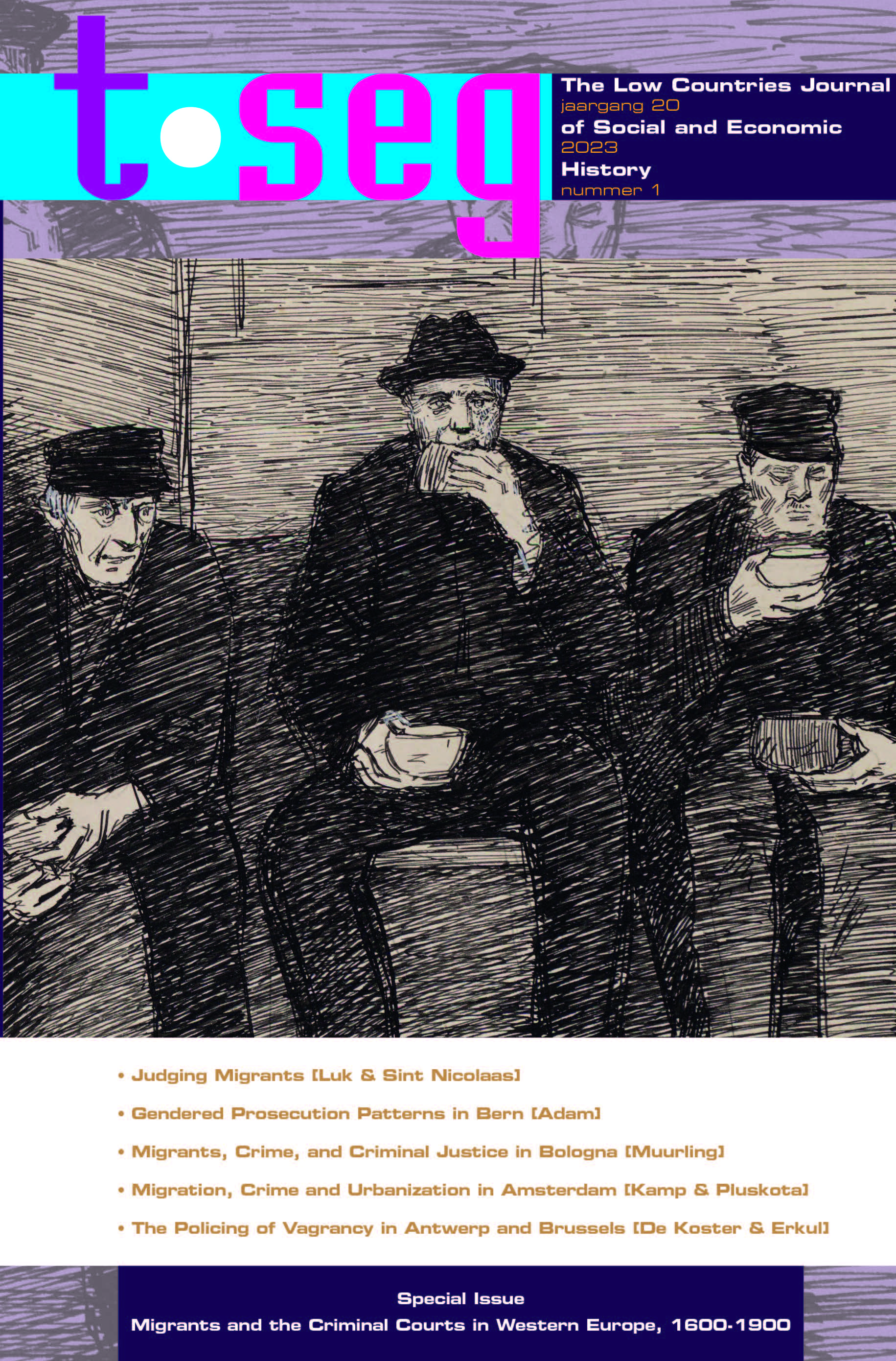The Lure of the City
Migration, Crime, and Urbanization in Amsterdam, 1850-1905
DOI:
https://doi.org/10.52024/tseg.13643Keywords:
Crime, Urban, Vagrancy, Migration, TribunalAbstract
This article questions the impact of urbanization on crime rates by studying Amsterdam migrants in front of the correctional court between 1850 and 1905 and connecting the historiography on crime and migration. The data shows no clear link between urbanization and a rise in crime, but it does reveal the role of external factors in the prosecution of specific crimes. The crisis experienced by the urban labour market in the late 1870 and 1880s had a direct impact on Amsterdam crime rates: although Amsterdam could initially integrate low-skilled workers in its labour market, the situation became unsustainable after a few years. It led to an increase in the prosecution of vagrancy and begging offences, which were committed first and foremost by Dutch unemployed or unskilled migrant workers. This article thus shows the importance of considering migrants in crime history not as a homogenous group but as different groups, each with its own support networks, and influenced differently by the micro- and macro-economic developments of the nineteenth century.
Downloads
Published
Issue
Section
License
Copyright (c) 2023 Marion Pluskota, Jeannette Kamp

This work is licensed under a Creative Commons Attribution 4.0 International License.






